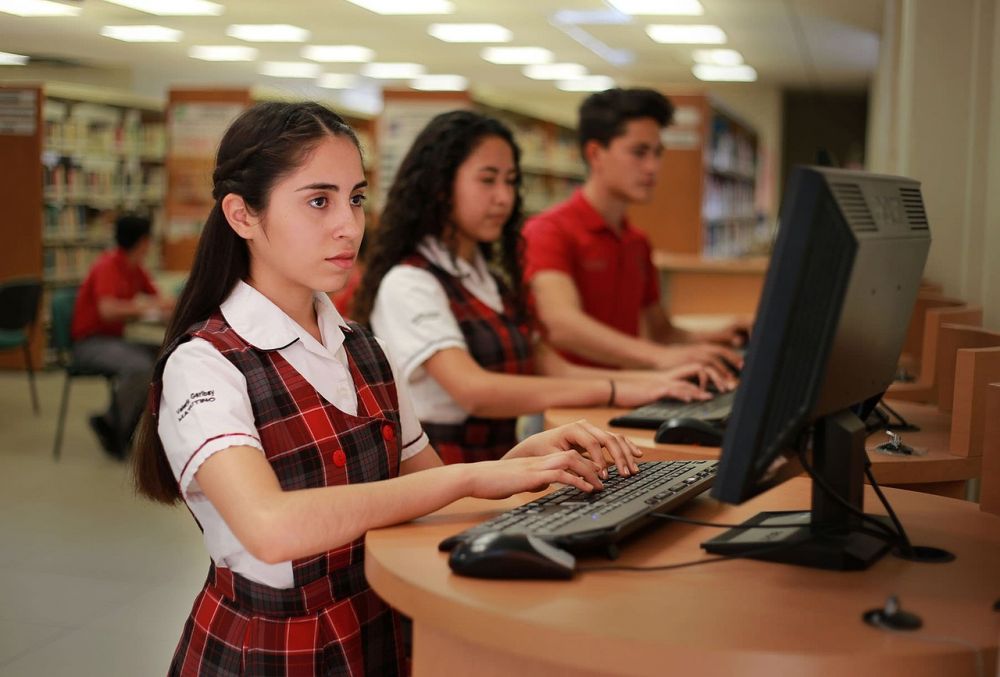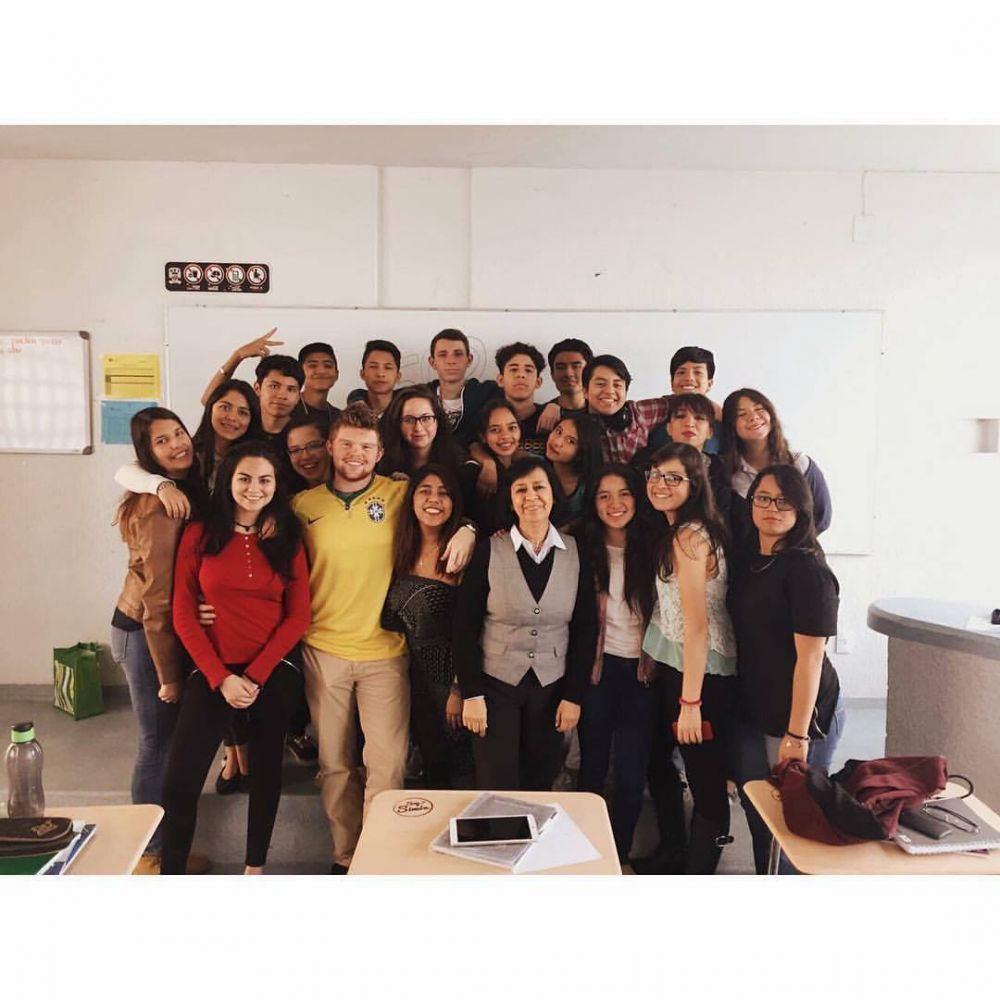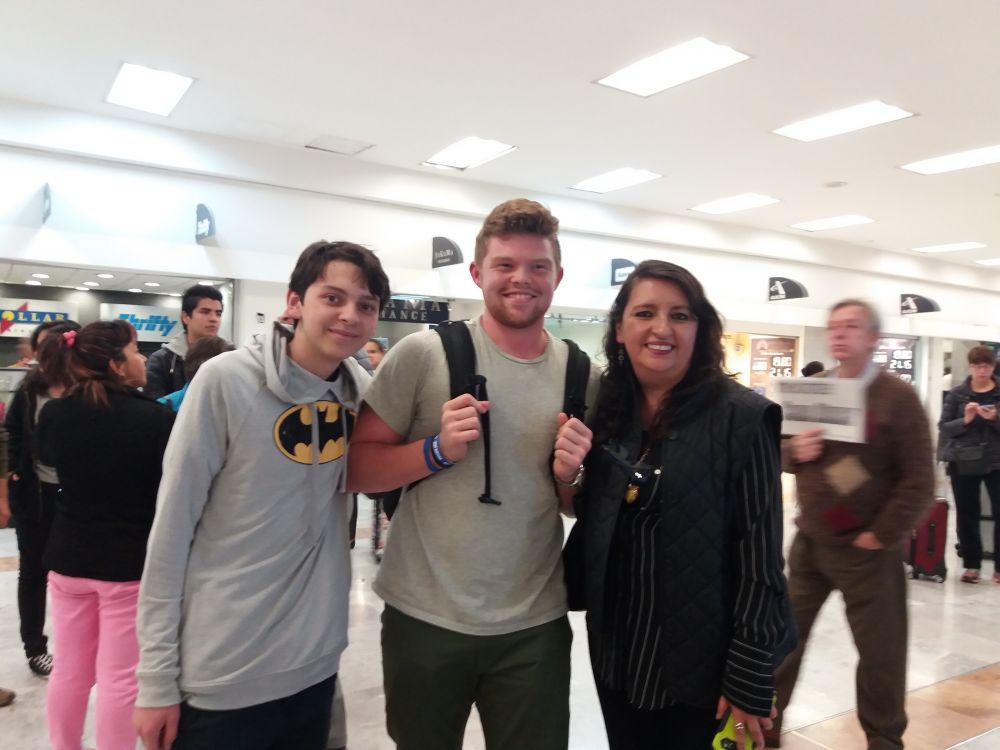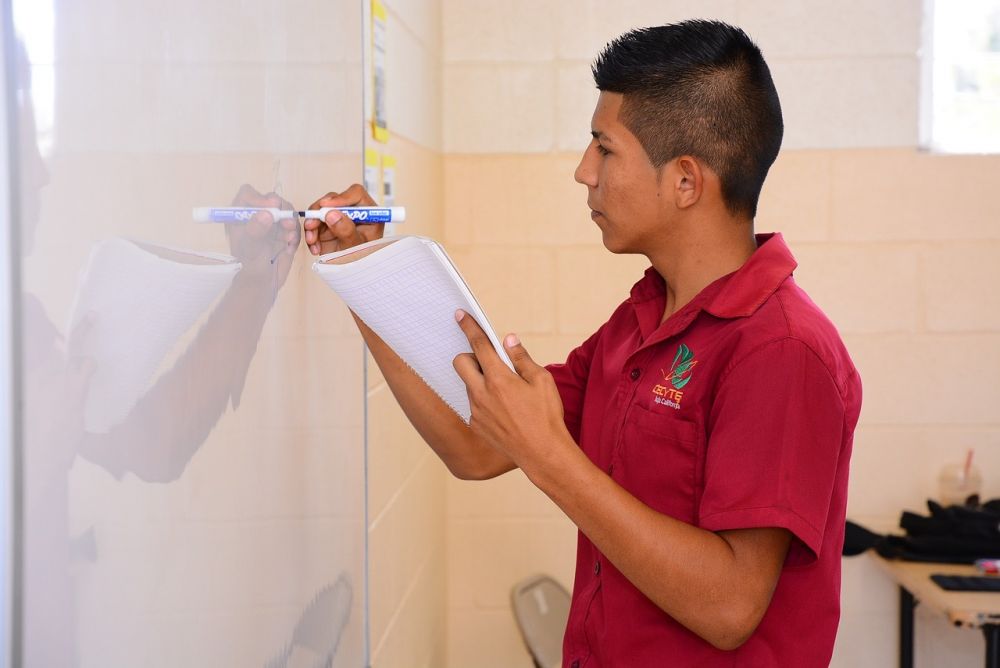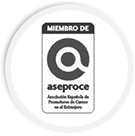High School Study Abroad in Mexico: how will your school year abroad in Mexico look like ?
- When do Mexican students go to High School?
- How many and which classes would I attend as an exchange student in Mexico?
- What does a class look like? Is it very different to what I’m used to?
- Will I be able to do some sports or arts at a Mexican school?
- What are Nacel recommendations to succeed during a school year abroad in Mexico ?
You may consider studying in Mexico for a school year abroad and you are wondering how high school look like in Mexico. Learn more about the Mexican school system.
When do Mexican students go to High School?
The High School calendar in Mexico is similar to what you are used to in North America, Europe, or elsewhere. School usually begins in early September and ends at various times from early to late June. Mexican students enjoy holidays in December for Christmas, in April, and obviously during the summer!
Mexican students typically attend school from Monday to Friday. Some schools teach on a morning schedule, starting at 7:00 to 7.30 a.m. completing the school day at 1:00 or 1.30 p.m. Early to start and early to leave! Other schools work on an afternoon schedule, whereyou may start school as late as 2:00 p.m., completing your school day at 9:00 p.m. Perhaps that is better for the late risers.
In Mexico, it is compulsory to go to school from the age of 3 to 18.
How many and which classes would I attend as an exchange student in Mexico?
You attend about five or six classes daily and enjoy a short break during the morning and a longer break around midday for lunch. Nacel places exchange students at private schools in Mexico. Private schools are sometimes bilingual or have religious foundations, but are typically more affordable than international schools. You will attend a standard Mexican curriculum in Grades 10, 11, and often Grade 12.
The Mexican curriculum is quite typical, and as an exchange student, you will be taught physics, biology, chemistry, Mexican history, and world history. Spanish literature is an important subject and not a course for non-native speakers seeking to learn the language. It is actually a course in the art of the language where you will discover Mexican or Spanish literature. It may be challenging at first!
You will also study a foreign language such as English or French. If you come from an English-speaking country and join an English course in a Mexican High School, it will be a course for non-native English speakers, rather than what you would be used to at home, and unlikely equivalent to an English language credit in the UK or US. The same applies to French. Some schools also teach rather interesting subjects such as psychology or Mexican law.
What does a class look like? Is it very different to what I’m used to?
Initially, you will study all of your subjects in Spanish unless you attend an international school teaching in English. It may be difficult at first for you to understand the content of the class. It is often really helpful to ask for help from your Mexican classmates and use their notes to increase your understanding of classes. It is important to focus on your Spanish during the first weeks of your high school exchange. It will determine your success for the rest of your school year abroad!
You also need to know that you may have to wear a uniform. All public schools and some private schools require their high school students to wear a uniform. Sometimes, it is a traditional and more formal uniform, but other times it could simply be the t-shirt of your school. This simply depends on which school you attend.
Another important thing to remember is that the teaching style in Mexico is more traditional in the classic sense. Teachers teach, students listen, and are expected to do what they are asked to do. :-) The teacher-to-student relationship is sometimes more formal than you are used to! Discipline could also be more important than in your school back home. Mexican schools do tend to focus on traditional and theoretical subjects such as science, math and languages with fewer practical subject options such as home economics.
Students are much encouraged to have an opinion and discuss the topics covered in class with Mexican high schools preparing their students for university life. The curriculum is broad-based during the first semester, with some schools offering students the option to specialize in specific subjects such as the sciences, social sciences, or arts later on.
Will I be able to do some sports or arts at a Mexican school?
Some schools may offer extracurricular clubs, but fewer than those offered in American schools. For example, most Mexican high school students practice a sport and/or do extracurricular activities outside of the school campus in local community clubs.
Very popular sports include soccer and basketball.
What are Nacel recommendations to succeed during a school year abroad in Mexico ?
You may wonder what your school grades will look like in Mexico.
Schools often use a percentage scale between 0 and 100, as follows:
• 90 to 100 is considered excellent ("excelente"), like an A-grade
• 80 to 89.99 is considered good ("bien"), like a B-grade
• 60 to 79.99 is often considered sufficient ("suficiente"), equivalent to a C-grade
• 0 to 59 99 is a fail ("reprobado") - like an F-grade
Other schools grade on a scale from 0 to 10, which is very similar and works as follows:
• 9 to 10 is excellent
• 8 to 8.99 is good
• 6 to 7.99 is sufficient
• 0 to 5.99 is a fail
It is important that you attend classes regularly and learn as much Spanish as possible during the first weeks of your stay. This will speed up how quickly you can understand the course content and begin to participate fully with your Mexican classmates. Then the fun begins.
Do not give up! Every day, you will feel more confident with your Spanish language skills, then you will understand the world around you and be able to answer questions from your Mexican teachers as well as talk about subjects with your fellow classmates. Of course, this will ultimately mean better exam results as well. Remember, we always encourage our exchange students in Mexico or wherever they are studying to share experiences with their host families. In this way, students feel supported, learn how to feel "at home away from home," and make their exchange experience a fond lifelong memory!
Your local Nacel coordinator regularly communicates with the school staff and reviews your personal situation so that you get the support you need. The most important thing to remember is to show your goodwill and motivation to do well. Like most situations in life, if your Mexican teachers and hosts see how committed you are, they will no doubt help you to be happy and successful.

Céline Gibassier is an Educational Advisor at Nacel International. She shares her passion for cultural exchange and language travel with students who want to study abroad and live new experiences.
She studied at Sciences Po Strasbourg and spent time abroad, giving her both strong academic knowledge and practical experience in student mobility, program development, and host family coordination.
Based in France, Céline has built a wide international network in the language travel and education fields. In her role, she helps students and host families work well together, ensures quality service, and supports meaningful and life-changing travel experiences.


